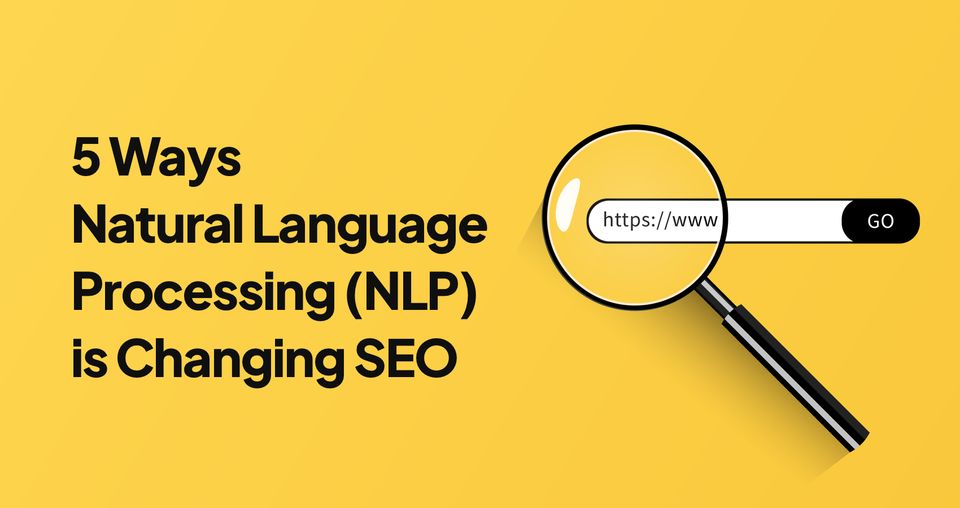
Natural Language Processing (NLP) is transforming SEO by making search engines smarter at understanding user intent, context, and meaning beyond just keywords. Google’s AI-driven updates, like BERT and MUM, are shifting SEO strategies from keyword stuffing to semantic relevance, contextual depth, and user-focused content.
Let’s explore five key ways NLP is changing SEO, followed by an in-depth example targeting “SEO Agency in Finland” using NLP-driven strategies.
1. Google Understands Search Intent More Accurately
How It Works:
- Google’s NLP models analyze search intent (Informational, Navigational, Transactional, or Commercial Investigation).
- Search engines now prioritize content that matches intent, rather than just keyword relevance.
SEO Strategy:
- Optimize content for different search intents using headings and structured data.
- Use question-based queries to match conversational search patterns.
- Example: Instead of writing “SEO Agency Finland”, create content answering:
✅ “How to Choose the Best SEO Agency in Finland?”
✅ “What Are the Top SEO Agencies in Finland for 2025?”
2. Passage Ranking Helps Rank Small Sections of Content
How It Works:
- Google now ranks specific sections (passages) within long-form content.
- Even if your entire page isn’t perfectly optimized, well-structured sub-sections can rank independently.
SEO Strategy:
- Break content into scannable sections with clear headings (H2, H3, H4).
- Answer long-tail questions within content to capture passage rankings.
Example for SEO Agency in Finland:
🔹 Section: “What Are the SEO Pricing Models in Finland?”
✅ “In Finland, SEO agencies offer pricing models such as hourly rates (€50-€150/hour), project-based pricing (€1,000-€10,000), and monthly retainers (€500-€5,000/month).”
Since this snippet directly answers a query, Google can rank it as a standalone result.
3. NLP Helps Google Understand Entities, Not Just Keywords
How It Works:
- Google prioritizes entities (people, places, brands, and concepts) over exact-match keywords.
- SEO is now about contextual relevance and relationships between topics.
SEO Strategy:
- Use structured data (Schema Markup) and entity-based optimization.
- Instead of focusing solely on “SEO Agency Finland,” include related entities like:
✅ “Digital marketing services in Helsinki”
✅ “Google Ads management in Finland”
✅ “Technical SEO experts in Espoo”
Example Structured Data for an SEO Agency in Finland:
jsonCopyEdit{
"@context": "https://schema.org",
"@type": "LocalBusiness",
"name": "Best SEO Agency Finland",
"address": {
"@type": "PostalAddress",
"streetAddress": "Mannerheimintie 12B",
"addressLocality": "Helsinki",
"addressCountry": "FI"
},
"contactPoint": {
"@type": "ContactPoint",
"telephone": "+358 40 123 4567"
}
}
This schema helps Google understand the agency as an entity, improving local search rankings.
4. Voice Search & Conversational Queries Are More Important
How It Works:
- 50%+ of searches are now conversational or voice-based.
- Google’s NLP models prioritize natural, full-sentence queries over fragmented keywords.
SEO Strategy:
- Optimize for long-tail, conversational queries.
- Use FAQs & structured Q&A content to match voice search patterns.
Example:
🔹 Instead of: “SEO agency Finland”
✅ Optimize for: “Which is the best SEO agency in Finland for startups?”
✅ Include an FAQ section like:
Q: How long does SEO take in Finland?
A: “SEO results in Finland typically take 3-6 months, depending on competition and industry.”
Google will extract these answers for featured snippets and voice search.
5. Sentiment Analysis Affects Rankings & User Engagement
How It Works:
- Google’s NLP algorithms detect tone, sentiment, and user engagement.
- Positive, engaging content ranks higher because it improves user experience (UX).
SEO Strategy:
- Write in an engaging, conversational tone.
- Use emotional triggers in meta descriptions & headings to boost CTR.
Example of a Strong Meta Title & Description:
✅ Title: “Award-Winning SEO Agency in Finland – Get More Traffic in 90 Days”
✅ Meta Description: “Looking for expert SEO in Finland? Our Helsinki-based agency guarantees a 30% boost in organic traffic. Get a free audit today!”
This boosts CTR and improves rankings through engagement-driven NLP.
Deep Search Example: “SEO Agency in Finland” Using NLP Strategies
🔹 Step 1: Identify Search Intent & Long-Tail Variations
- Transactional Intent: “Best SEO Agency in Finland”
- Commercial Investigation: “SEO Agency Finland reviews”
- Informational Intent: “How does SEO work in Finland?”
🔹 Step 2: Optimize Content Using NLP-Powered Keywords
Use Google’s NLP API or tools like SurferSEO to find contextually relevant terms.
- LSI Keywords: “SEO strategy Finland,” “Google algorithm updates Finland,” “local SEO Helsinki”
- Entity-Based Optimization: Mention Google Finland, Finnish digital marketing trends, and EU SEO regulations.
🔹 Step 3: Implement Passage Ranking & FAQs for Higher Visibility
Example FAQ Section for “SEO Agency in Finland”
✅ Q: How much does SEO cost in Finland?
✅ Q: What industries benefit most from SEO in Finland?
✅ Q: Is local SEO important for Finnish businesses?
🔹 Step 4: Optimize for Voice Search & Featured Snippets
Format answers in short, precise sentences (40-60 words).
✅ Voice Search Example:
❌ “SEO services Helsinki”
✅ “Hey Google, what are the best SEO agencies in Helsinki?”
Solution: Write conversational content with schema markup for FAQs.
Final Thoughts
NLP is fundamentally changing SEO, making it more about understanding user intent, entities, and conversational search rather than keyword repetition.
🚀 Key Takeaways:
✅ Optimize for search intent (not just keywords)
✅ Use structured data & entity-based SEO
✅ Target conversational queries & voice search
✅ Leverage passage ranking & FAQ snippets
✅ Write engaging, sentiment-driven content
Would you like an NLP-powered SEO audit for your website? Let’s tailor an AI-driven content strategy for your business! 🚀

